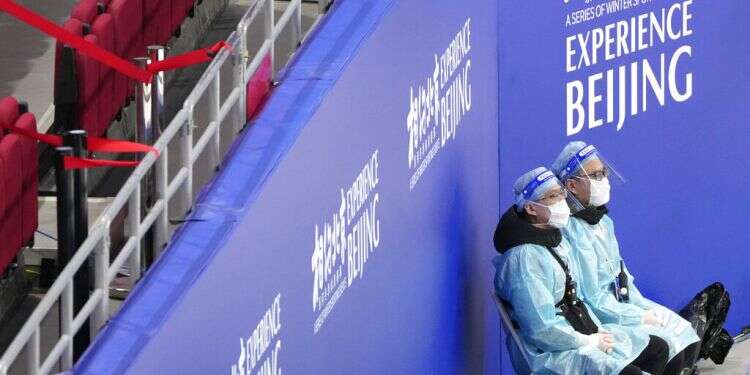Israel's coronavirus infection rate stands at 0.57% according to Health Ministry data. Of the 73,113 people who tested for the virus Thursday, 391 were found to have the disease.
Follow Israel Hayom on Facebook and Twitter
There are 6,130 active cases of the virus. There are 149 people in serious condition, 101 of whom are on ventilators.
Although 1,321,957 Israelis have recovered from the disease since the outbreak of the pandemic, 8,138 have died.
On the vaccination front, 6,255,302 Israelis have received at least one dose of the coronavirus vaccine, while 5,751,925 have received two doses. Over 4 million Israelis – 4,012,357 – have received all three available doses of the vaccine.
China reported on Friday the first COVID-19 cases among foreign athletes at preparatory events for the upcoming Beijing 2022 Winter Games, as stringent measures being put in place to control any outbreaks are put to the test.
Two lugers of the same nationality tested positive, said Huang Chun, an official of the Games organizing committee.
Both have been transferred to quarantine hotels, he told a news briefing in the Chinese capital.
Beijing's vice mayor previously said the coronavirus would be one of the biggest challenges to the city's hosting of the Games.
A widespread outbreak related to the Games would hurt China's track record of containing clusters quickly, having elected to maintain a zero-tolerance approach toward COVID-19.
The Olympic Games will run from Feb. 4 until Feb. 20, with all participants subject to daily COVID-19 tests, and no international spectators. Athletes and other Games-related personnel will also be enveloped in a "closed-loop" bubble.
"We will still let the person take part in training and activities related to the games, but (the individual) needs to go through strict health monitoring and COVID-19 testing every day," Huang said, referring to the first athlete who tested positive.
The individual will also stay in their room, eat, and ride in vehicles alone, Huang told reporters.
The second case was a close contact of the first athlete, he said, without giving details on their nationality.
Japanese Prime Minister Fumio Kishida outlined on Friday an urgent plan to increase hospital beds and medical resources in preparation for a possible resurgence of COVID-19 in the country this winter. The government plans to boost hospital bed capacity by about 30%, bolster in-home care, and collect data to predict which hospitals will come under pressure.
Kishida said this week that the "trump card" in the government's pandemic fight was the procurement of oral treatments that could prevent the need for hospitalization. Japan will pay about $1.2 billion to Merck & Co Inc for 1.6 million courses of the COVID-19 antiviral pill molnupiravir, according to terms announced on Wednesday. That's about half the supply that has been secured by the United States and compares with a total of 1.7 million coronavirus cases in Japan since the start of the pandemic.
Meanwhile, Sweden has seen a sharp decline in COVID-19 testing this month, just as much of Europe contends with surging infection rates after its health agency said vaccinated Swedes no longer need to get tested even if they have symptoms of the disease.
The health agency's stance has rekindled criticism that the country has once again broken ranks with its neighbors and has led to some of its regions no longer providing free testing for all. Health agency official Sara Byfors defended the decision saying testing would still be at high enough levels to catch trends and it had never caught all cases.
Subscribe to Israel Hayom's daily newsletter and never miss our top stories!




